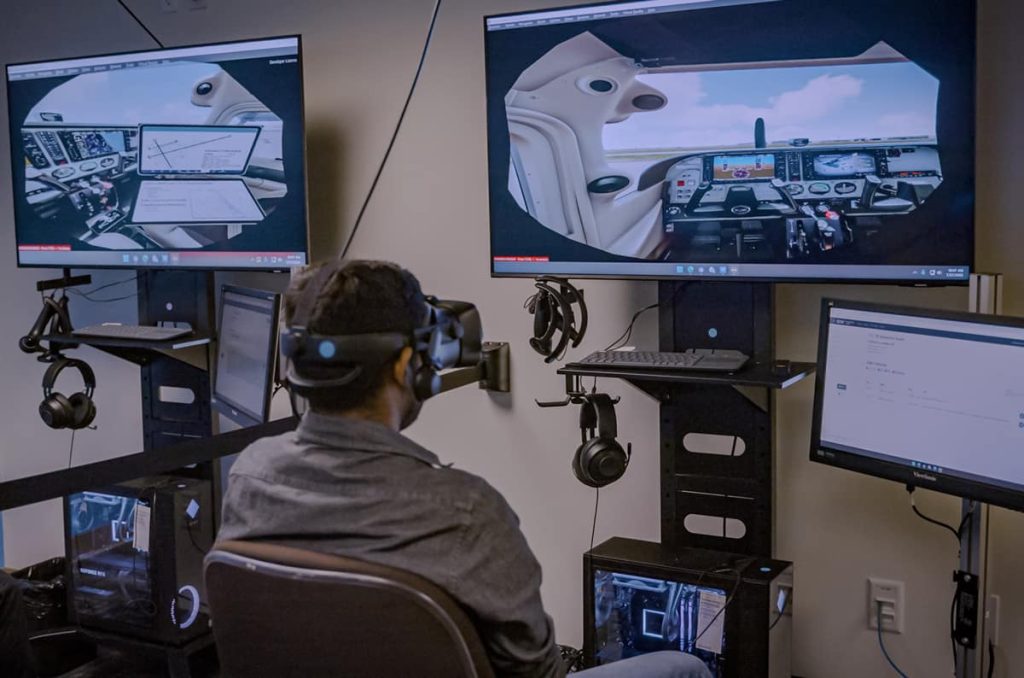The rapid advancement of artificial intelligence (AI) technology is opening up exciting new possibilities in pilot training, particularly in enhancing communication skills—an essential component for ensuring safety and efficiency in aviation. Traditional methods of teaching pilots how to communicate effectively often involve repetitive practice in the cockpit or flight simulators. However, these conventional approaches come with inherent challenges, such as providing immediate feedback during live flights and managing the stress that students experience when dealing with real-time radio communications.
Embry-Riddle Aeronautical University has taken the lead in integrating AI into pilot training, especially in the area of communication. By harnessing innovative technologies, the university is transforming how students learn to communicate as pilots, moving beyond outdated role-playing scenarios and passive practices.
AI-Driven Training: A Breakthrough at Embry-Riddle
At Embry-Riddle, advanced AI tools from industry partner Advanced Simulation Technology Inc. (ASTi) are instrumental in their air traffic control (ATC) communication training programs. These AI systems are designed to simulate real-world conditions, including the complexities of airspace around Daytona Beach International Airport, creating realistic training environments for students.
The training process begins with an immersive virtual reality (VR) setup, where students engage with a 360-degree flight video under the guidance of an instructor. Following this introductory phase, they utilize ASTi’s Pilot Phraseology Trainer, a tool that enables students to practice radio communications. This trainer displays essential flight diagrams, instrument images, and 3D models, allowing students to engage with the material actively. Importantly, the AI evaluates their responses in real-time, offering feedback on aspects such as pronunciation, structural clarity, and adherence to FAA communication standards. This interactive approach fosters a safe, controlled environment where students can learn at their own pace without the pressure often associated with live training.
Once students have built a foundation in communication skills, they progress to ASTi’s Simulated Environment for Realistic ATC (SERA). This advanced system combines a customized VR flight trainer with dynamic machine learning algorithms that generate realistic air traffic scenarios. SERA allows students to interact with virtual air traffic controllers who provide instructions and respond to queries just as real controllers would. This comprehensive training approach ensures that students practice their communication skills in a realistic context, preparing them effectively for actual flight scenarios.
Improved Proficiency and Future Developments
The results of this AI-driven training approach have been promising. Ken Byrnes, chair of the flight department at Embry-Riddle’s Daytona Beach campus, notes that students have shown significant improvements in their radio communication skills. The immersive and focused nature of the training reduces the time it takes for students to become proficient communicators, which ultimately translates to enhanced performance during actual flights.
Furthermore, Andrew Schneider, who designed the ATC communication course, is actively working on integrating speech recognition and natural language processing tools into live flight training. This innovative step aims to harness AI’s capabilities to analyze complex data sets generated during students’ flights. By tailoring training scenarios based on individual performance, instructors can reinforce areas that require improvement, thereby enhancing the overall training experience.
Tom Schnell from the University of Iowa’s Operator Performance Laboratory believes that AI tools can further elevate pilot training by analyzing performance data from various flights. This analytical approach would allow instructors to identify skill gaps and address them proactively, providing students with tailored support to refine their training experiences.
A New Standard in Pilot Training
Visitors to Embry-Riddle’s immersive lab are often struck by the level of engagement and realism present in the training process. The integration of AI technology enables students to manage communications effectively throughout their simulated flights, preparing them well before they step into an actual aircraft.
As AI continues to evolve, its potential to revolutionize pilot training becomes increasingly evident. The advancements in communication training offered by Embry-Riddle are just the beginning; the future holds even greater promise. With ongoing research and development in AI technologies, the landscape of pilot training is poised for transformative changes that will redefine how future pilots are prepared for their careers.
The Implications for Aviation Safety
The implications of enhanced communication training for pilots cannot be overstated. Effective communication is critical in aviation, where miscommunication can lead to serious safety issues. By utilizing AI tools to improve communication skills, flight training programs can ensure that pilots are not only technically skilled but also proficient in the essential soft skills required in high-pressure environments.
Moreover, the integration of AI in training can lead to increased confidence among student pilots. With the ability to practice in realistic simulations, students can focus on mastering their communication skills without the immediate pressures of a live environment. This confidence translates to better performance in real-world scenarios, contributing to overall aviation safety.
Conclusion
The integration of artificial intelligence in pilot training, particularly in enhancing communication skills, represents a significant leap forward in aviation education. Embry-Riddle Aeronautical University is at the forefront of this revolution, employing advanced AI technologies to provide students with interactive and effective training experiences. As AI continues to develop, its applications in pilot training will only expand, promising to reshape how future aviators are trained and prepared for their vital roles in the skies.
In the years to come, as AI tools become increasingly sophisticated, the potential for more personalized and effective training experiences will grow. For pilot training programs, this evolution offers an exciting opportunity to raise standards and ensure that all pilots are equipped with the skills necessary to navigate the complexities of modern aviation. By investing in AI-driven training methods today, the aviation industry is setting the stage for a safer, more efficient future in the skies.

